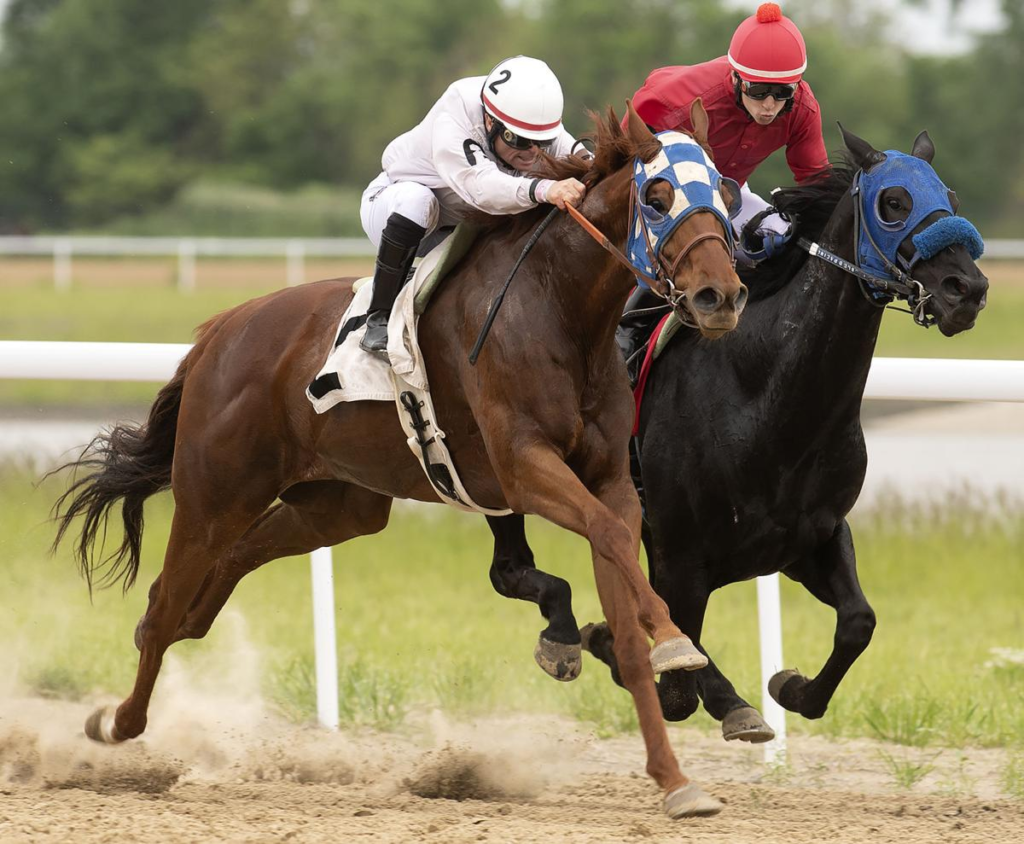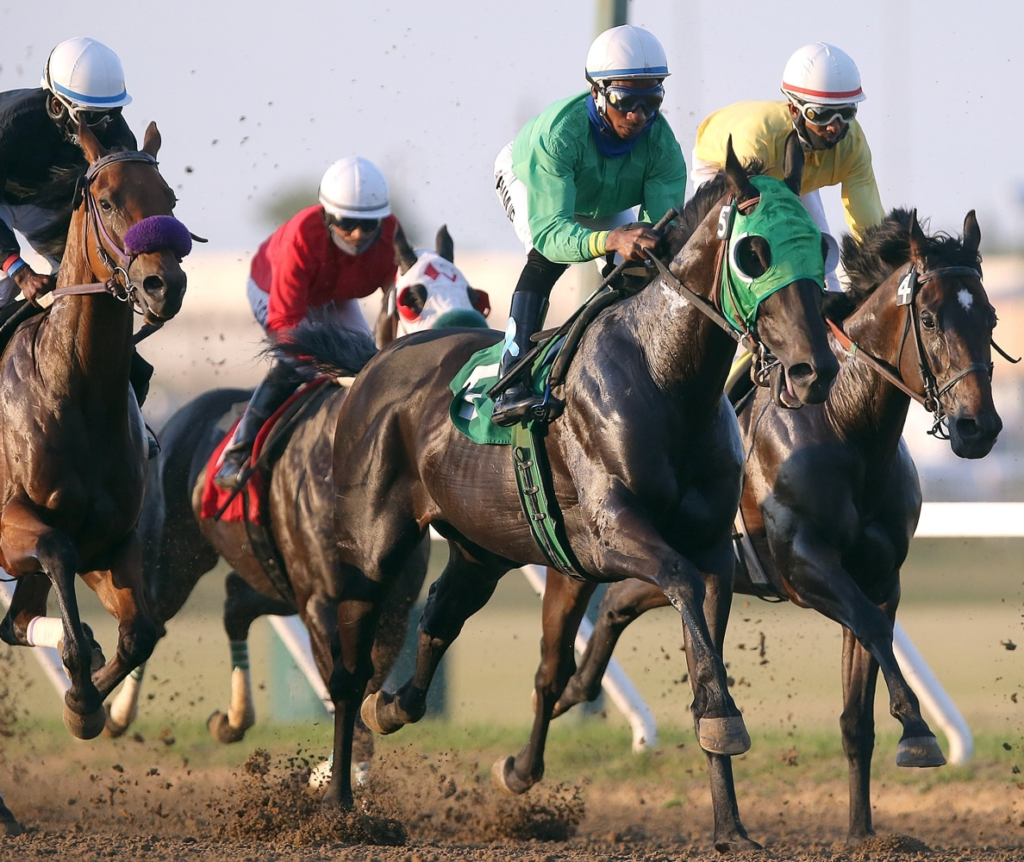Weather conditions play an important role in horse racing. And understanding their impact is crucial for a successful bet. From sunny skies to torrential rain. Different weather conditions can affect the condition of the track. The performance of the horses and the results of the races. As players making bets. It is important to analyze and take into account the impact of weather conditions when making reasonable bets.
In this article, we will look at the various ways in which weather conditions can affect horse racing. As well as their implications for betting strategies https://in.1xbet.com/line/horse-racing. We will consider the influence of various weather factors. Such as rain, wind, temperature and conditions on the track, on the performances of horses and jockeys. Understanding the relationship between weather and race dynamics. Players can make more accurate predictions and increase their chances of success.
Weather conditions can significantly affect the surface of the track. Which leads to changes in speed, traction and the general condition of the track. For example, heavy rain can lead to the formation of a wet or sloppy track. This will affect the grip of the horses’ hooves and potentially have a beneficial effect on some types of runners. On the other hand, dry and hot weather may lead to a hard and fast track, which can benefit speed-oriented horses.

The Relationship Between Weather and Track Conditions
The relationship between the weather and the conditions of the track at the races. It is a decisive factor that can significantly affect the outcome of races. Various weather conditions such as rain, temperature, wind and humidity. Can affect the condition of the track, which ultimately affects the performances of horses and jockeys.
- One of the most apparent effects of weather on the track is the presence of rain. Wet track conditions can lead to a slippery surface, making it more challenging for horses to maintain their footing. This can result in slower race times and increased risks of injury. On the other hand, the dry conditions of the track provide horses with better traction. Thereby allowing them to run faster and more efficiently.
- The amount of rainfall and the duration of wet conditions can also affect the track’s consistency. A light drizzle may result in a damp track, while heavy downpours can create a muddy or sloppy surface. These different humidity levels can further affect a horse’s performance. And determine which horses are best suited for such conditions.
- Aside from rain, temperature plays a significant role in track conditions. Extreme heat can lead to a hard and fast track surface, potentially favoring horses with speed-oriented running styles. Conversely, low temperatures can cause the track to become firmer. This can benefit horses that prefer harder surfaces.
- Wind can also have an impact on track conditions and race dynamics. Strong gusts of wind can affect the pace of the race, making it challenging for horses to maintain a consistent speed. Jockeys may need to adjust their riding tactics accordingly. To navigate in wind conditions. And also ensure optimal positioning throughout the race.
- Humidity is another weather element that can influence track conditions. A higher humidity level may affect the density of the air. Thereby potentially affecting the horse’s respiratory system and overall performance. Horses may struggle to breathe efficiently in humid conditions, leading to fatigue and decreased stamina.
- It is important for players to take into account the relationship between the weather and the conditions of the track. To make informed betting decisions. Analysis of historical data and past performances of horses, in specific weather conditions. Can give valuable information about how they can perform in the current races. Certain horses may excel in particular track conditions, while others may struggle.
- Moreover, jockey adaptability is crucial when it comes to weather-related track conditions. Experienced jockeys who know how to navigate different surfaces and adjust their riding style. Depending on the prevailing weather conditions. They may have a competitive advantage over others.
The Effects of Rainfall on Horse Racing
The effects of rainfall on horse racing are significant and can greatly influence the outcome of races. The amount of rain that falls determines the conditions of the track, which in turn affects how horses perform.
When it comes to rainfall, the condition of the track can range from firm to soft to heavy. Hot and dry weather causes the ground to become hard, while rain makes it soft and can lead to muddy or sloppy tracks. These varying track conditions present different challenges for horses and jockeys.
- On a firm track, horses have better traction and can run faster. This surface is more conducive to horses with speed-oriented running styles. However, excessive rainfall can lead to softening or weighting of the track. Which will make it difficult for the horses to maintain their speed. The softer the track, the slower the race times tend to be.
- Certain horses may excel in wet track conditions due to their ability to navigate through mud and sloppy surfaces. These horses are often referred to as “mudders” or “mud runners.” They have a better grip and can handle the added challenge of running in wet conditions. Players who know about the horse’s performances in rainy weather. They can take this into account when placing their bets.
- It is important to note that horse races typically proceed even in the presence of rain. Unless the rainfall is excessively heavy and poses a danger to the riders and horses, races will usually go ahead. However, in some cases, races scheduled on turf tracks may be moved to dirt tracks if the turf becomes too wet.
- While precipitation plays a significant role in determining conditions on the highway. Other weather factors, such as temperature and wind, can also affect the jumps. Extreme heat can result in hard track surfaces, favoring horses with speed. Conversely, cold temperatures can make the track firmer, potentially benefiting horses that prefer harder surfaces. Wind can affect the pace and dynamics of a race, requiring jockeys to adjust their strategies accordingly.
The Role of Wind in Horse Racing
Wind plays a significant role in horse racing and can have an impact on race outcomes. Although wind gusts may not directly affect the condition of the ground during the races. They can create problems for both horses and jockeys. Here are some key points about the role of wind in horse racing:
- Wind Resistance: When horses run against headwinds, it can create additional resistance, making it harder for them to maintain their speed. This increased resistance can result in longer race times and potentially impact a horse’s performance.
- Tailwinds: On the other hand, tailwinds can provide a boost to horses by pushing them forward. A strong tailwind can help horses run faster, leading to quicker race times. Jockeys often strategize to take advantage of favorable tailwind conditions during races.

- Energy consumption: Horses running in a headwind. More energy is consumed compared to running with a tailwind or in calm conditions. Additional effort required to overcome wind resistance. Can affect the endurance of the horse. And also, potentially affect her ability to finish strong in the race.
- Track Drying: In cases where there has been rainfall, wind can play a role in drying out the track. Strong winds can help evaporate moisture from the surface, which can lead to improved track conditions. This drying effect of wind can be beneficial for horses that perform better on firmer tracks.
- Wind Operations: In horse racing, wind operations refer to surgical procedures aimed at addressing respiratory issues in horses. These operations can improve a horse’s breathing and airflow, allowing them to perform better in races. Wind operations are often announced in horse racing forms. To ensure transparency for the players. And also, inform them about any previous procedures that the horse has been subjected to.
Conclusion
In conclusion, weather conditions play a significant role in horse racing betting. Factors such as rainfall, temperature, wind and conditions on the highway. All this can affect the performance of the horses and, ultimately, the outcome of the races. Bettors who understand the relationship between weather and track conditions can make more informed betting decisions.
Rainfall can lead to varying track conditions, ranging from firm to soft or muddy surfaces. Horses may excel or struggle based on their ability to navigate these different conditions. Understanding a horse’s performance in wet or dry tracks can provide valuable insights for bettors.
The temperature can also affect the condition of the track: extreme heat leads to the formation of hard surfaces. And low temperatures make the track more elastic. These variations can favor certain types of horses, depending on their running style and preference for track firmness.